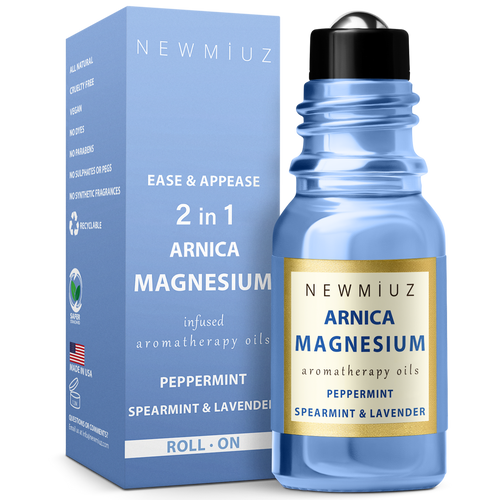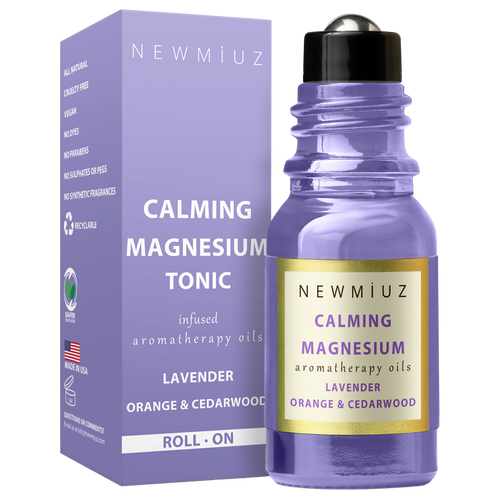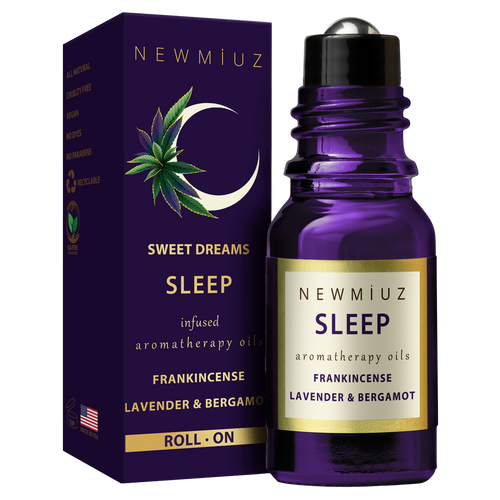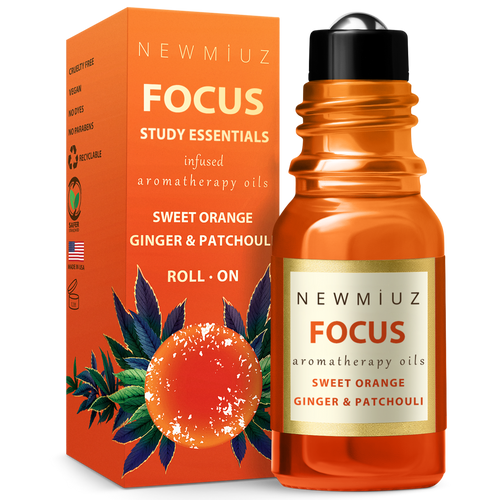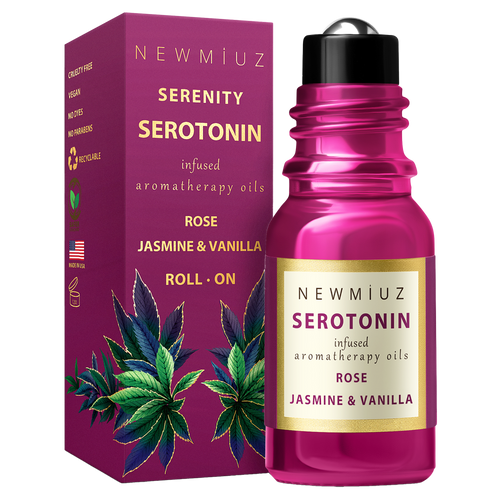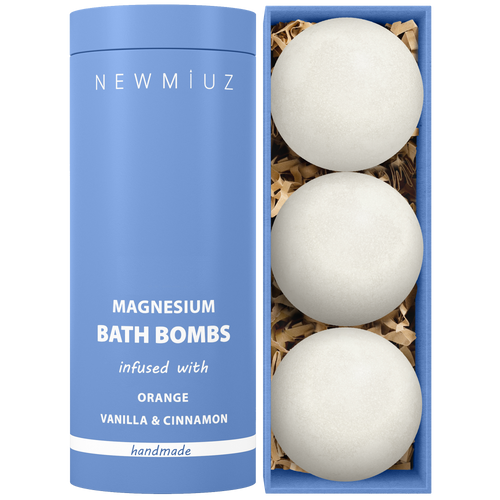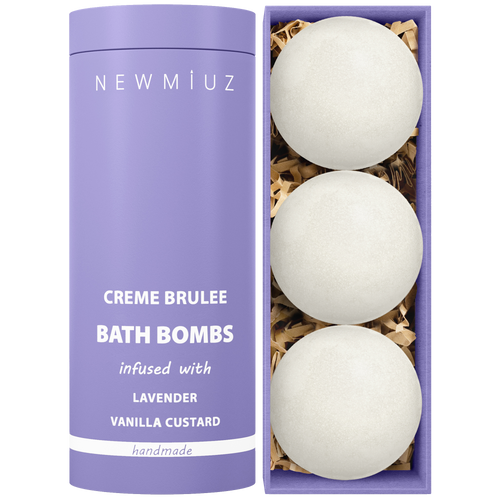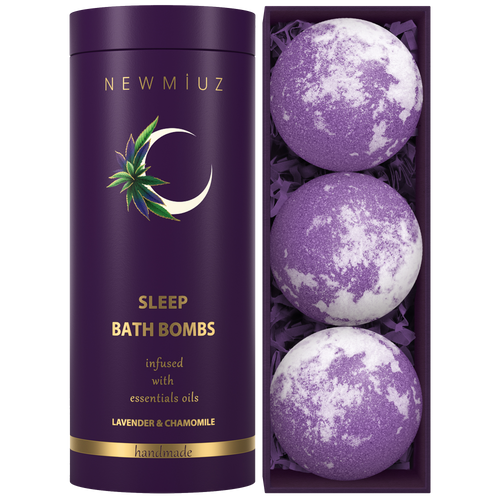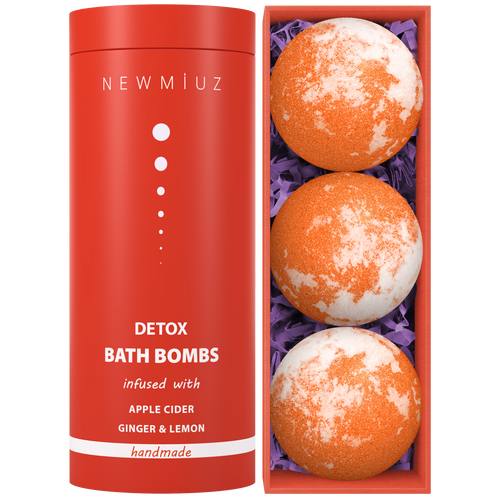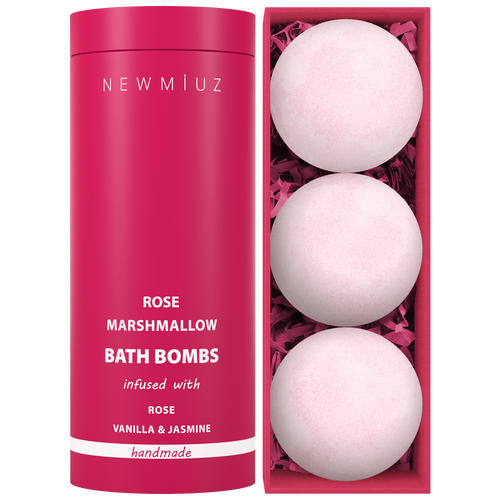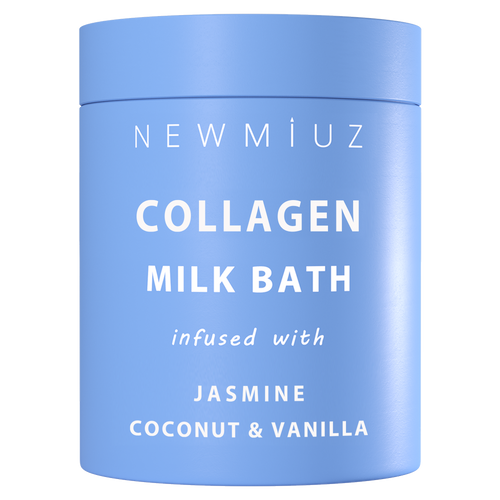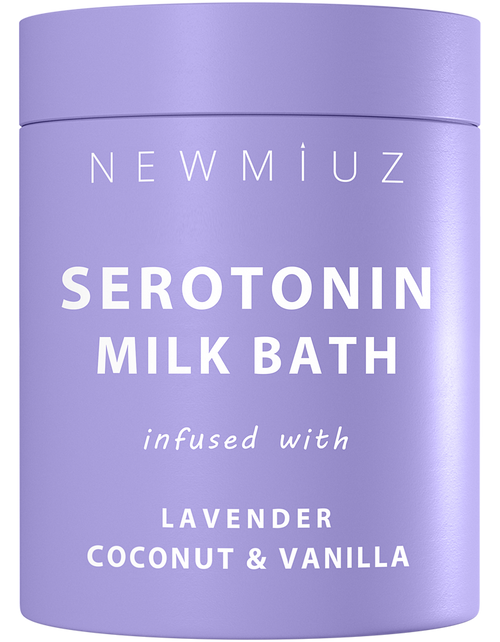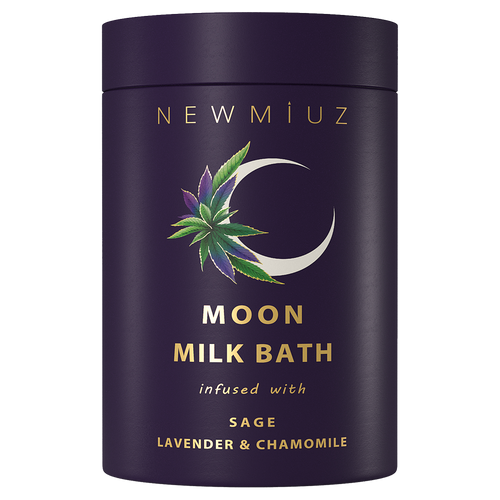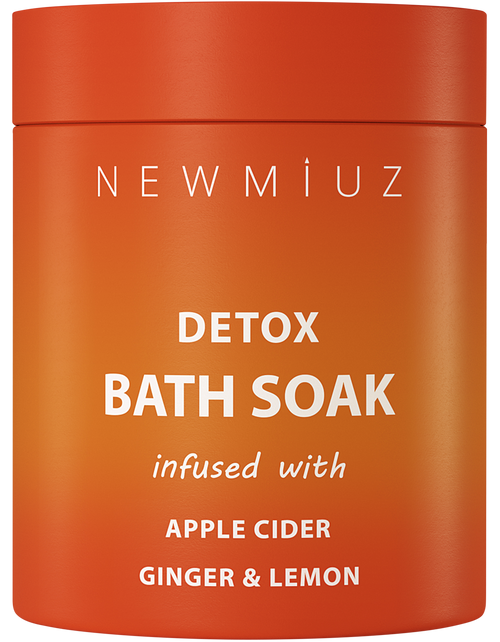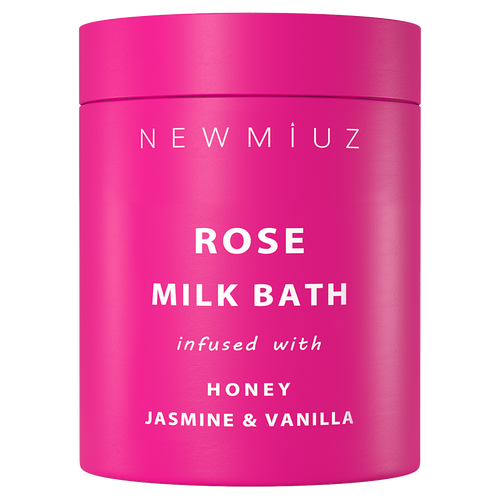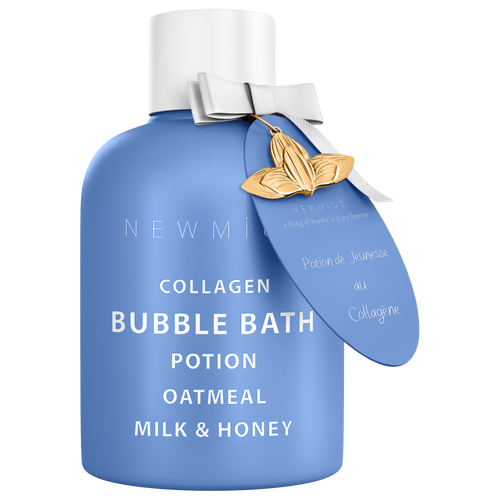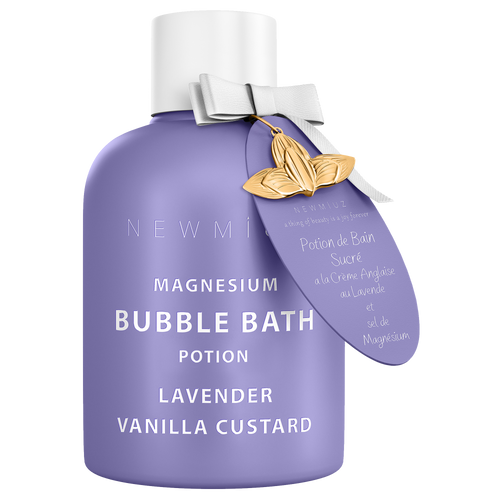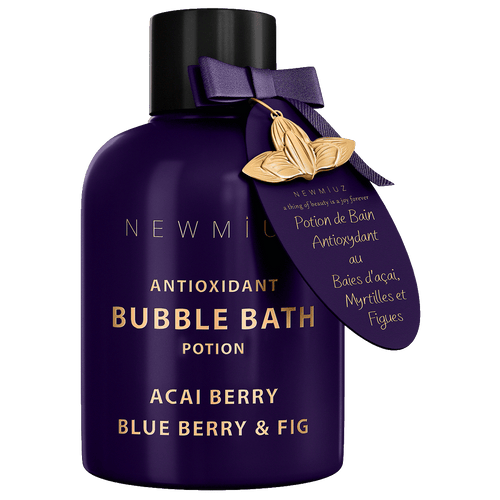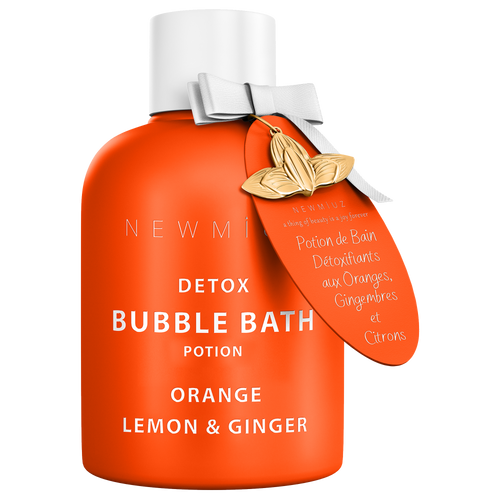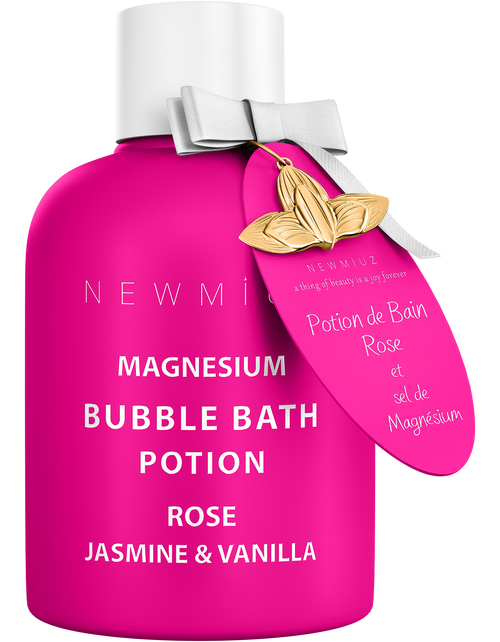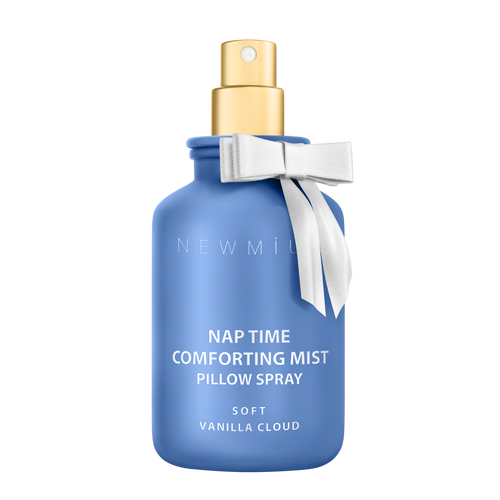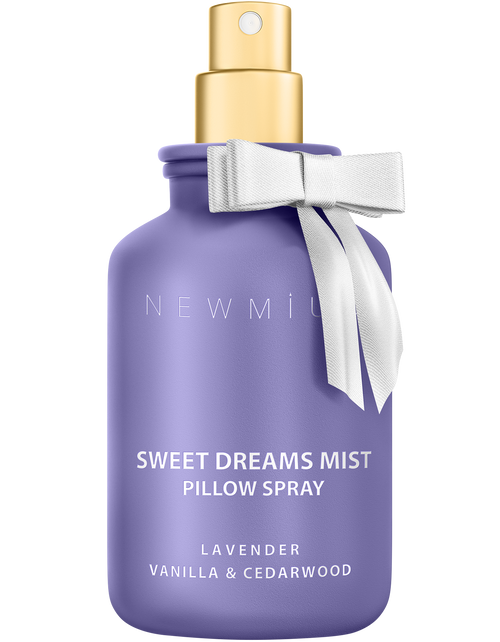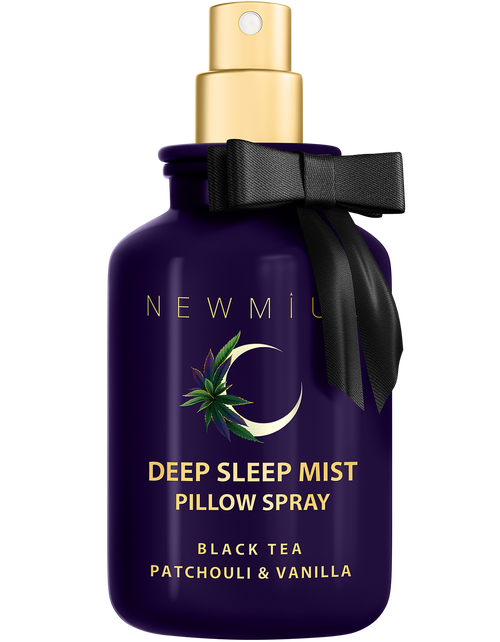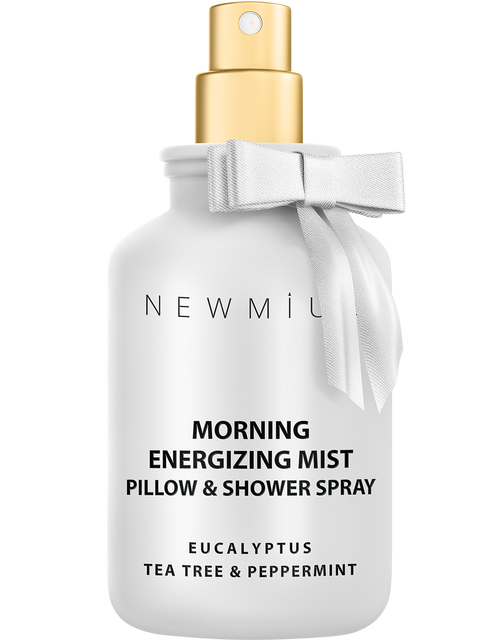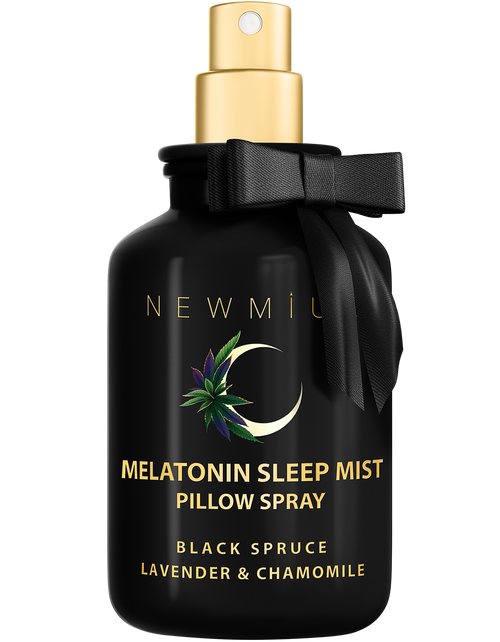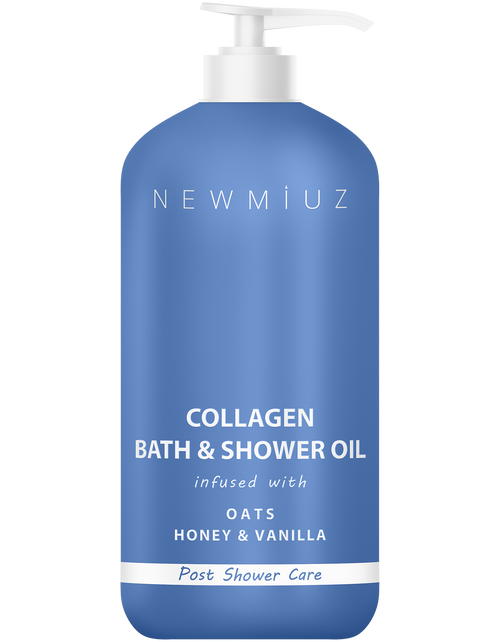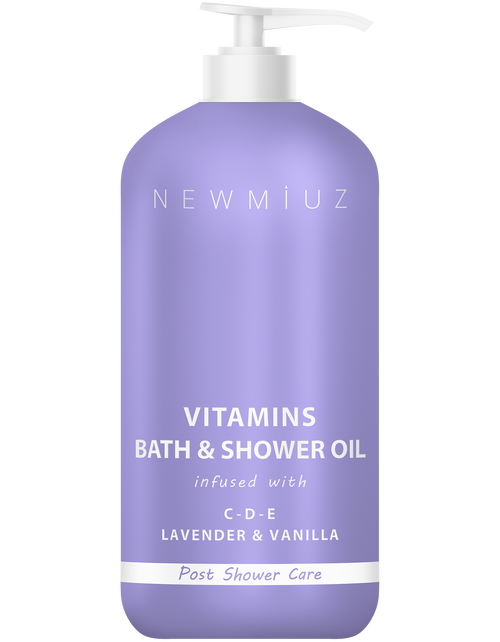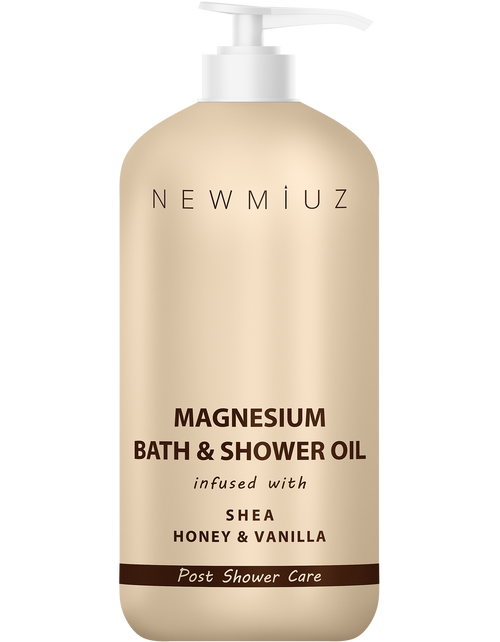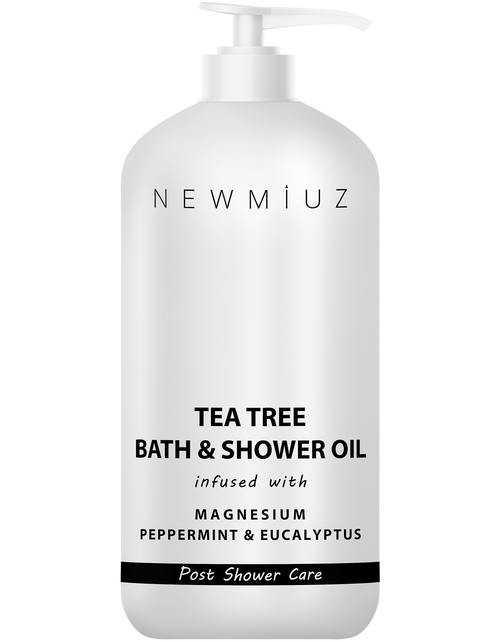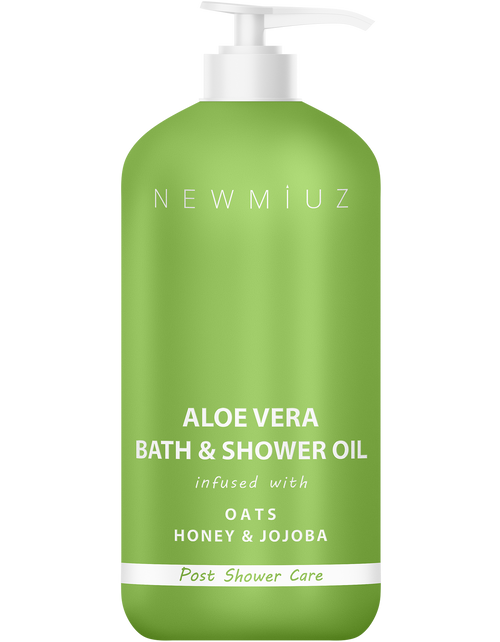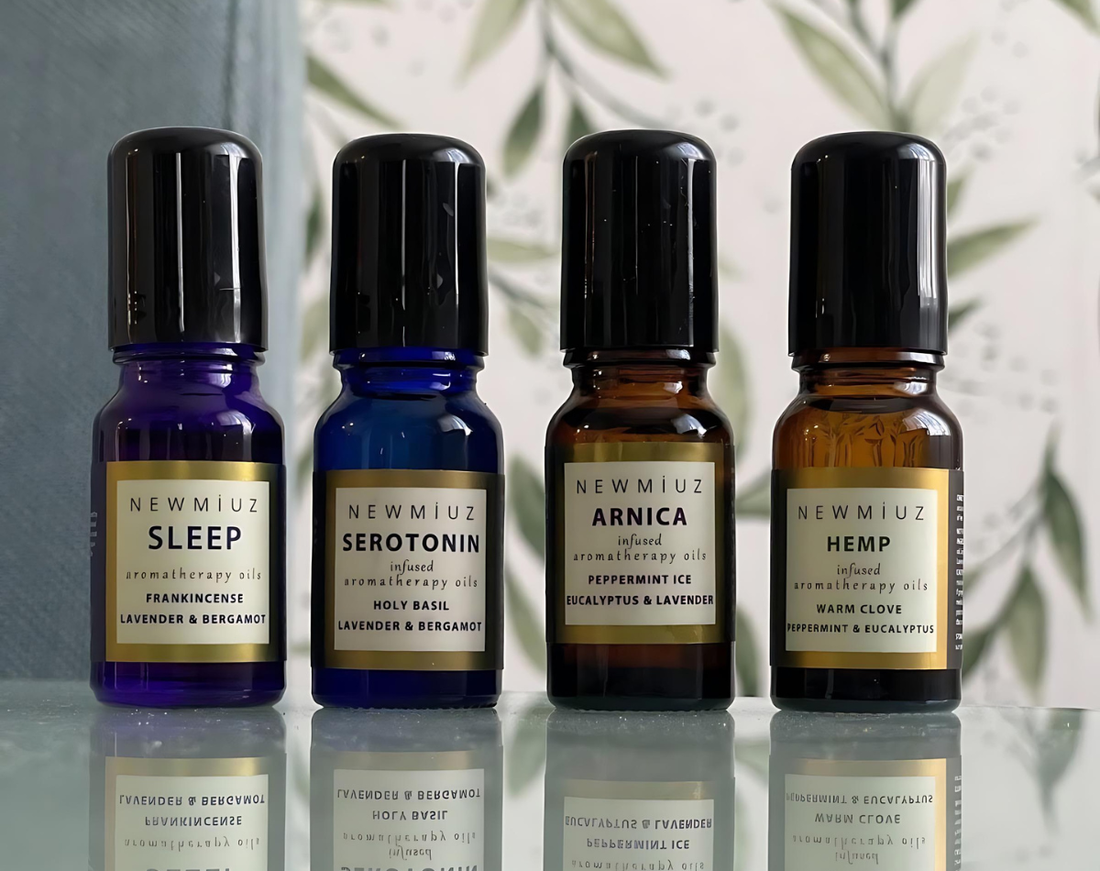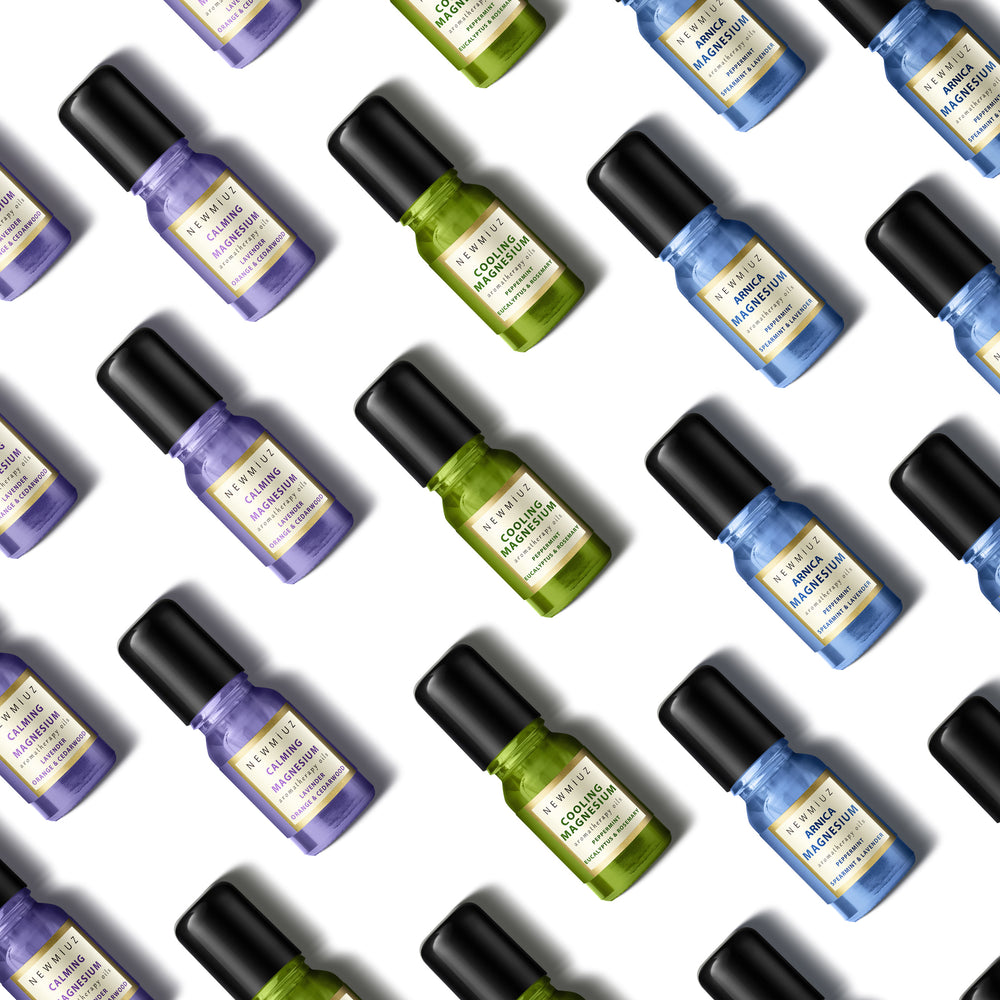Key Takeaways:
- Fragrance Oils: Synthetic and stable fragrance oils offer diverse, long-lasting scents ideal for products like perfumes and candles but lack the therapeutic benefits of essential oils.
- Essential Oils: Essential oils, derived from plants, provide authentic scents with therapeutic properties, promoting holistic well-being through practices like aromatherapy.
- Making the Choice: Choosing between fragrance and essential oils depends on your specific needs. Essential oils are preferred for their natural origins, environmental benefits, and alignment with sustainable practices.
At New Miuz, we are committed to providing you with the finest aromatherapy essentials and the peace of mind that comes with using products that are good for you and the planet. Our products are worth a try because they are ethically and responsibly made, aromatherapist-approved, and 100% natural.
For aromatherapy and wellness, understanding the difference between fragrance oils and essential oils is essential for anyone looking to thoughtfully and effectively enhance their personal or home environment. Though these oils are often used interchangeably in casual conversation, they possess distinct characteristics, origins, and uses that cater to various demands and preferences.
In this article, we will explore the fundamental differences between fragrance and essential oils, helping you make informed decisions that align with your ethical and natural living values.
Understanding Fragrance Oils: Composition And Usage
Fragrance or aroma oils are synthetic creations designed to mimic the aroma of natural products such as plants, flowers, and certain food items.
Composition Of Fragrance Oils
They are primarily composed of various aromatic chemicals that can be engineered to produce a wide array of scents not always found in nature. This unique capability allows fragrance oils to offer a highly valued versatility in the cosmetic and home fragrance industries.
Usage Of Fragrance Oils
Fragrance oils are used in making perfumes, colognes, and other personal care products like lotions and soaps, as well as in household items such as candles and air fresheners. One of the primary benefits of fragrance oils is their consistency. Unlike essential oils, whose scent profiles can vary significantly due to natural variations in crop yields and weather conditions, fragrance oils provide a consistent scent every time they are used.
Another advantage of fragrance oils is their potency and longevity; they maintain their scent for longer periods in storage and application. This extended durability also makes them cost-effective, since smaller quantities can be used to achieve the desired scent intensity compared to their natural counterparts.
However, it's important to note that while fragrance oils are invaluable for their stability and variety, they lack the therapeutic properties that many essential oils offer. They are crafted for their smell rather than their health benefits.
Essential Oils: Sourcing And Properties
Essential oils are concentrated plant extracts obtained through various methods, notably steam distillation, cold pressing, and solvent extraction. These natural oils capture the plant's scent, flavor, or "essence" from its leaves, flowers, bark, or fruit.
Sourcing Of Essential Oils
The quality and properties of essential oils can greatly vary depending on where and how the plant materials are grown, harvested, and processed. At New Miuz, we ensure that each essential oil is sourced from local farms that adhere to high cultivation standards and sustainable practices.
Properties Of Essential Oils
Each essential oil has a unique chemical composition defining its aromatic and therapeutic properties. Lavender is celebrated for its calming and relaxing effects, while eucalyptus oil is valued for its respiratory benefits.
At New Miuz, we offer a range of products infused with 100% natural essential oils, designed to nurture your mind, body, and spirit. Whether you're looking for bath bombs, skincare, or aromatherapy solutions, our products are crafted with the finest essential oils to provide a truly therapeutic experience. Embrace nature's power and switch to pure, ethically sourced ingredients today.

Chemical Composition: A Comparative Analysis
Essential Oils
Essential oils are concentrated liquids extracted from various plant parts, including flowers, leaves, bark, roots, resin, and peels. They are extracted through steam distillation, cold pressing, or resin tapping.
Chemically, essential oils are complex mixtures containing terpenes, esters, aldehydes, ketones, and alcohols. Each compound contributes to the oil's unique aroma, therapeutic benefits, and physical properties. For example, linalool in lavender oil is noted for its anti-anxiety and sedative effects.
Fragrance Oils
Fragrance Oils are synthetic molecules derived from petroleum byproducts. Unlike essential oils, fragrance oils are not restricted to what nature can produce. This allows for a broader range of scents, including things that do not naturally produce oils, such as fresh rain or baked goods. Chemically, fragrance oils often include phthalates and synthetic musk, which can sometimes cause concern due to their stability and potential health risks.
The contrasting natures of these substances highlight why essential oils are typically preferred in aromatherapy and holistic practices. Essential oils offer natural compounds that can interact with the body in ways that promote healing and well-being. On the contrary, fragrance oils provide an extensive palette of scents that enhance the sensory appeal of products but may not contribute any therapeutic benefits.
Thus, essential oils are the superior choice for those looking for health benefits directly tied to natural elements.
Extraction Methods For Essential Oils
The process of obtaining essential oils is careful and meticulous, primarily to preserve the integrity and potency of the natural extracts.
Here’s a closer look at some of the most common methods used in the extraction of essential oils:
Steam Distillation
This is the most prevalent and traditional method of extracting essential oils. In steam distillation, steam is passed through plant materials, which causes the essential oil to evaporate along with the steam. The steam and essential oil vapor then pass through a cooling system where they condense into a liquid, and are subsequently separated. This method is preferred because it efficiently extracts oils at relatively low temperatures, preserving delicate botanical compounds.
Cold Pressing
Cold pressing, also known as expression, is commonly used for citrus peel oils such as lemon, orange, and bergamot. It involves mechanically pressing the plant material to squeeze out the oils, which does not involve heat, which helps maintain the vibrant aroma and high quality of the oil.
Solvent Extraction
Solvent extraction is used for botanicals that are too fragile for the high heat of steam distillation. It involves using a solvent like hexane or ethanol to dissolve the plant constituents and release the essential oils. The solution then undergoes a process to remove the solvent, resulting in a concentrated oil. This method is typically used for flowers like jasmine, which are too delicate for distillation.
CO2 Extraction
CO2 extraction uses supercritical carbon dioxide as a solvent to extract the essential oil. Under high pressure, CO2 is transformed into a liquid, which acts as a solvent to dissolve and extract the oils from the plant material. Once the pressure is released, the CO2 returns to its gaseous state, leaving behind the pure essential oil. This method is noted for its ability to extract oils without damaging them and for not leaving behind any solvent residue.
Manufacturing Of Fragrance Oils
Fragrance oils, or synthetic fragrances, are engineered scent compounds created in laboratories. They combine various chemical components to mimic the natural aromas of plants, flowers, and other materials. Typically, fragrance oils are derived from petrochemicals to produce odor compounds that do not occur in nature alongside some that do.
Here are the steps followed in manufacturing fragrance oils:
- Identify Target Scent: The process starts by choosing a specific natural scent to replicate.
- Scent Replication: Techniques such as gas chromatography and mass spectrometry can be used to analyze the chemical makeup of natural odors.
- Chemical Synthesis: After identifying essential components, chemists synthesize the fragrance by mixing multiple ingredients, ranging from tens to hundreds, to match the scent profile.
- Safety and Stability Testing: The synthesized fragrances undergo rigorous testing to ensure they are safe and stable.
- Use in Commercial Products: Once approved, these fragrance oils are used in the beauty and home care industries.
Choosing Between Fragrance and Essential Oils Based On Needs
When deciding between fragrance and essential oils, you must consider your specific needs and the benefits each type of oil offers.
Here’s a guide to help you make an informed choice:
Purpose
If your primary goal is aroma, fragrance oils often provide a more persistent and diverse range of scents. They are engineered to mimic natural scents and can include many fragrance profiles that are sometimes unavailable in essential oils. On the other hand, essential oils are your best bet if you are looking for therapeutic benefits such as stress relief, mood enhancement, or anti-inflammatory properties. Their natural components are known to interact beneficially with the body.
Skin Care
Those interested in natural skin care should lean towards essential oils, which are derived directly from plants and free of synthetic components. Essential oils like lavender, tea tree, and rosemary have properties that can help with skin issues like inflammation, acne, and dryness. It’s essential, however, to dilute them properly to avoid skin irritation. While useful for perfuming products, fragrance oils might contain allergens or synthetic ingredients that could irritate sensitive skin.
Environment And Safety
Essential oils are typically more environmentally friendly than fragrance oils since they are derived from natural sources with minimal processing. Being aligned with New Miuz's commitment to ethical and responsibly made products, essential oils fit perfectly into a lifestyle that values sustainability. However, it is important to source these oils from reputable suppliers to ensure they are pure, undiluted, and sustainably harvested.
Cost And Accessibility
Typically, essential oils are more expensive than fragrance oils due to the considerable amount of plant material required for a small amount of oil. However, considering their potency and the smaller amounts needed for effective use, they might offer better value in the long run for those using them for their therapeutic properties.

Final Thoughts
At New Miuz, our commitment is to provide products that nurture your body and mind and respect the planet. Our aromatherapist-approved essential oils capture the purest scents of nature, carefully extracted to support your wellness journey.
Essential oils are invariably preferable for those who cherish ethical, cruelty-free, and naturally sourced products. They align well with the values of sustainability and health-conscious living. Whether you choose fragrance oils for their variety and stability or essential oils for their natural therapeutic properties, it is important to source them from reputable producers who prioritize quality and ethical practices.
Read also:
- Essential Oils for Migraines
- Detox Bath Soaks: A Luxury Gift for Self-Care Seekers
- Mindfulness and Aromatherapy: Essential Oils for Anxiety Management
Frequently Asked Questions About Fragrance Oil vs. Essential Oil
What are fragrance oils?
Fragrance oils, also known as aromatic oils or perfume oils, are manufactured scents. They are artificially created fragrances that contain synthetic compounds or are derived from combinations of various chemical components to mimic natural scents. These oils are primarily used in perfumery, cosmetics, flavoring of food, and household cleaning products.
What are essential oils?
Essential oils are concentrated plant extracts from flowers, herbs, bark, and roots, distilled or cold-pressed. They capture the plant's scent and flavor, or "essence." Unique aromatic compounds give each essential oil its characteristic essence. Essential oils are widely used in aromatherapy practices for their therapeutic properties.
How are fragrance oils made?
Fragrance oils are created in laboratories through chemical synthesis. Manufacturers blend various synthetic chemicals to replicate the scent of specific plants or create entirely new scents. These oils can also include natural essential oils as part of their compounds but are predominantly synthetic.
How are essential oils extracted?
Essential oils are extracted primarily through steam distillation, a process where steam is passed through plant material. The steam vaporizes the volatile compounds, which are then condensed into liquid form upon cooling. Other methods include cold pressing, particularly for citrus oils, and solvent extraction, which are used for delicate plant materials that might be damaged by high heat.
Can fragrance oils be used in aromatherapy?
While fragrance oils can add aroma to products, they do not offer the therapeutic benefits that essential oils provide. They are not typically recommended for aromatherapy as they lack the natural constituents necessary for health benefits and can contain synthetic compounds unsuitable for wellness purposes.
Are essential oils better for health?
Essential oils are considered better for health in the context of aromatherapy. They are natural plant extracts that contain the true essence of the plant they are derived from, including beneficial properties that can promote physical and mental well-being. However, they should be used responsibly and typically diluted to avoid possible adverse reactions.
What are the common uses of fragrance oils?
Fragrance oils provide a lasting scent in perfume, cosmetics, and personal care products. They are also widely used in home care products such as candles, air fresheners, and cleaning products. Their stable and strong scents make them popular choices in industries where fragrance consistency and longevity are desired.
Can fragrance oils be used on the skin?
Fragrance oils might be diluted in skincare and cosmetic products. However, due to their synthetic ingredients, they are more likely to cause skin irritations and allergies than essential oils. It is crucial to conduct a patch test before using products containing fragrance oils extensively on the skin.







